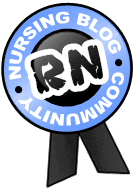Have you found that the guys in your classes or at work are any less competent than the women? Do they get treated any differently at work by patients, nurses and doctors? How are they managing to fit in with the overwhelmingly female workforce?To start off with I think there are going to be 'bad apples' in any nursing class and workforce, so to say that one person was bad based on their gender wouldn't really be appropriate. I can tell you one thing, I think it would be harder to be a male nurse than a female one.
Or is it (like the nursing theory you mention) that the male gender is just something you bring into your patient interactions, and you can make masculinity a positive part of the nursing experience?
First, stereotypes abound. You would constantly be correcting people and say that you are a nurse when you go to talk to a patient (they will think you are a doctor). That must be annoying. You will also be known as the 'male nurse'- and people will know who you are in both classes and in the workforce. You are one of the few (although growing in numbers) men who are willing to tackle a challenging job.
Second, I don't think there is anything against male nursing, but men tend do things... well... differently. In my experience I find women nurses to be 'mothery' - even I catch myself doing it sometimes (and believe me I am not maternal). Men tend to think practically and logically- it's hard to explain and I don't think I'm communicating it well, but it almost seems as they are more decisive and less coddling with their patients. Again a stereotype.
I know that having a male working in the pod oftentimes changes the nature of nurse interactions- for the better. Whereas group-think and interactions in a bunch of females can be quite catty, in my experience throw one man along with the women and it tends to be much more neutral workplace. As for fitting-in with a majority-woman workforce, I guess that would be up to you and where you choose to work. Set boundaries about dating coworkers and stick to them. Keep an open mind and be ready to listen to 'girl-talk'. It sucks but that's sometimes what my colleagues have to put up with.
As for interactions with the physicians, I really couldn't say because that is fairly individual. Most MD's that I work with prefer nurses to be knowledgable, inquisitive, on top of things, and keep them informed of what's going on with their patients. Male vs female... I guess it depends on the group of doctors. In my department there are quite a few women doctors, and I haven't really noticed any male/female nurse differences.
One area that you probably will never work as a nurse will be OB/Gyn. No matter how "PC" some women are, when it comes to their vajay-jays, they prefer female nurses over males. You could be the best nurse ever when it comes to labour and delivery, but you probably will find that it will not really be an option for you in the workforce.
I also find that men seem to congregate in certain areas of the workforce- ED, ICU, or critical care. I'm sure there has been a study on this- but why they tend to work in those areas I do not know.
Finally, similar to female doctors in a male-dominated role- there will be some resistance from patients. Most 60+ year olds are not expecting their nurse to be male, nor are they expecting their doctor to be female. Anecdotal evidence (n=1... me this time) has told me that some little old ladies do not feel comfortable with a male helping wash her private parts. Although this is few and far between, as a male nurse I would assume you would need to not let it bother you if a patient requests a different (aka female) nurse. That being said, I have yet to hear of anyone doing this (exempting some cultural practices where they requested females for EVERY part of their interaction with the staff at the hospital).
Overall if you feel like tackling not only nursing school, but nursing itself, you probably have the right attitude. However if you hate working with women, perhaps you could find yourself a male dominated department, but otherwise nursing may not be for you.
There are some great male-nurse blogs out there, I'm thinking they would be a better resource than me!. Here are just a few:
http://disappearingjohn.blogspot.com/
http://ermurse.blogspot.com/
http://www.impactednurse.com/
http://nursesean.com/
http://nursewilliam.blogspot.com/
http://nursinghole.blogspot.com/
http://mystrongmedicine.com/
http://www.nurseinaustralia.com/
I'm sure they could be a great resource for you.
Good luck!





